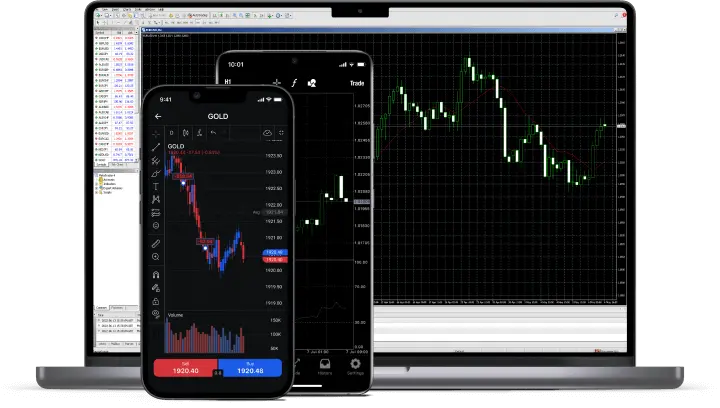client accounts
FxPro has been providing online trading services to clients since 1999 and it currently serves 173 countries worldwide.
client accounts
FxPro has been providing online trading services to clients since 1999 and it currently serves 173 countries worldwide.
Awards
FxPro has received constant recognition in the industry, winning over 130 international awards to date for the quality of its services.
customer service
Our dedicated, multilingual customer service team works 24/5 to provide you with an exceptional level of support.
industry regulations
FxPro operates under strict regulatory oversight across multiple jurisdictions, including authorisation by the FCA in the UK — one of the most trusted financial regulators globally.

We understand that different clients have different needs. Therefore, we offer a wide selection of trusted, award-winning platforms and account types to choose from.
World indices are indicators of price changes for a certain group of securities. The stock exchange index can be explained as a “basket” of shares united by a common basis. Trading indices can be compared to opening positions on the courses of several dozen stocks at once.
The most important thing is determining the exact stocks or bonds each index is formed from. The set of shares included in the spot index value calculation determines the information that can be obtained by observing the dynamics of its course.
In general, the main purpose of world indices is to create a powerful indicator for investors to characterise the direction of companies’ quotes in a particular industry. Studying the dynamics of major indices helps to understand the impact of certain events on the value of securities.
During trading indices, keep in mind that the reaction to the economic news published may not correspond with expectations and forecasts.
For example, if there is a rise in oil prices, it is logical to expect an increase in the shares of all the oil companies.
However, different stocks grow at different speeds, while some of them may not respond to such news at all. In this case, the spot index helps traders to understand the overall trend of this market segment without the need to assess the position of lots of different companies.
Observation and trading indices give insights into how the different sectors of the economy trade in comparison with each other. Here at FxPro we are glad to offer the trading of CFD on major indices, which makes it possible to join the price movement not only for a rise, but also a fall.
Trading indices is popular among FxPro traders due to its comprehensive terms, accurate quotes from several suppliers and versatile analytics. After all, in order to understand the logic of the index behaviour, you need to pay attention to the corporate news of each of the companies included, as well as on events affecting the wider industry as a whole.

Trade major and minor Index CFDs Spot and Futures from around the globe.
The leverage available to you may differ depending upon your jurisdiction and the instrument/platform you are trading with.
Please follow the link below to find out more information in regards to leverage: https://www.fxpro.com/leverage-information